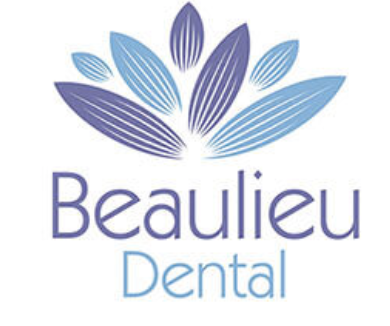Plaque and tartar are common dental problems, but many people believe them to be the same. While both can increase the risk of gum disease, tooth decay and other serious dental conditions, there are key differences between them.
As plaque and tartar buildup occurs as a result of daily behaviours, such as eating, knowing the differences between plaque vs. tartar can help you to identify when your teeth have plaque or tartar, and the warning signs of each.
It is important to remember that they are both preventable and you can take the necessary steps to get rid of and prevent plaque and tartar from coming back. Keep reading to learn the difference between plaque and tartar and how to remove them.
What is plaque?
Plaque is a substance that forms on the teeth and around the gum line when bacteria in your mouth mix with sugary and starchy foods. It is caused by natural bacteria that live in the mouth and it is often unavoidable.
Plaque is a daily development, and everybody is at risk. However, regular brushing and flossing can help to prevent and reduce signs of plaque in the mouth.
If you do not brush your teeth properly or frequently, plaque begins to form and build up on your teeth. Although the negative consequences of plaque do not occur immediately, plaque left unchecked and untreated can develop into more serious dental issues such as gum disease and tooth decay.
What is tartar?
If plaque isn’t removed by regular brushing and flossing, the bacteria in your mouth mixes with leftover food particles causing plaque to harden and become tartar.
When tartar collects above or underneath the gum line, gum tissue can become sore, swollen, and may bleed easily.
A tartar build-up cannot be flossed or brushed away. The only way to remove tartar is to visit a dentist or dental hygienist. Like plaque, tartar can lead to serious dental problems.
Without treatment, tartar can cause permanent discolouration of teeth, cavities, gum disease, tooth infection, and tooth loss.
The difference between plaque and tartar
Learning the key differences between what plaque and tartar look like will help you distinguish between the two, and understand what treatment might be best for your teeth.
Appearance
Plaque can be white, yellow, or colourless which can make it difficult to notice. Often, tartar looks much darker. It is typically an undesirable shade of yellow, however, it can also appear brown, green, and black, making it much more identifiable in the mouth.
Texture
Plaque is a soft, sticky film that can make your teeth feel and look ‘fuzzy’. Although it may be colourless, you are likely to be able to feel plaque when you rub your tongue against your teeth.
Tartar is a rough substance with a hard texture. It may feel like a hard shell on your teeth, and you may notice it flaking or chipping away after rough brushing.
Maintenance
Plaque can be removed and maintained by brushing and flossing regularly. Tartar can only be removed by a professional cleaning from a dentist and is unlikely to be removed by a toothbrush.
How do you tell if it is plaque or tartar?
If you have tartar, you may notice discoloured spots on teeth, hard rough patches, and swollen gums.
If you have plaque, you may notice a ‘fuzzy’ feeling on your teeth, bad breath that does not go away after brushing, and a yellow film build-up around teeth and gums.
The most effective way of identifying if you have plaque or tartar is by attending an appointment with a dentist. Dental professionals can accurately distinguish between the two, and be able to provide suitable treatment for each. They will also check for cavities, gum disease, and other serious dental problems.
How to get rid of plaque
The easiest way to get rid of plaque is by brushing twice a day, however, there are some best practices you can follow to ensure that plaque buildup stays at a minimum.
Our best practices include:
-
- Proper Brushing Technique – Use a soft-bristle toothbrush and brush for at least two minutes, making sure to clean all surfaces of your teeth.
- Flossing – Daily flossing helps remove plaque and food particles from between teeth and along the gumline.
- Fluoride Toothpaste – Fluoride helps to strengthen tooth enamel and prevent tooth decay, by preventing plaque bacteria from producing harmful acids.
- Drink Water – Water helps to rinse away any food particles and bacteria in your mouth.
- Professional Cleanings – Dental hygienists can remove plaque and tartar and provide advice on looking after your teeth.
- Balanced Diet – A diet rich in fruits, vegetables, and lean proteins while limiting sugary and acidic foods can help to reduce plaque buildup.
To prevent plaque, it is important to practise good oral hygiene and schedule a professional cleaning and examination with a dentist every six months.
How to get rid of tartar
Once plaque has hardened and become tartar, it should only be removed and treated by a dentist or a dental hygienist. Although it may be tempting to attempt to remove tartar at home, this can cause significant damage to your teeth.
To control tartar, ensure you brush regularly for at least two minutes each time, choose a tartar-control toothpaste, schedule regular visits to the dentist, and floss between teeth.
Book your dental checkup with Beaulieu Dental
At Beaulieu Dental, we specialise in providing professional dental services to NHS and private patients in the Chelmsford area.
We understand how important your smile is for your confidence and well-being, which is why we focus on providing patients with an enjoyable and smooth experience during each visit.
Our talented team of dental experts can help restore your smile and guide you to having a healthy oral hygiene routine, offering a wide range of treatments as well as direct access appointments with our hygienist, so you can book without first seeing a dentist.
Reach out to our friendly team and start the process of plaque removal for a healthier, brighter smile today!


